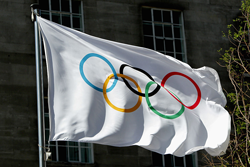Content
- Origins of modern Olympics Games
- Issues of ‘shamateurism’
- Professionalism and ‘Lombardian’ ethic
The amateur ethos of the Olympics has been gradually eroded over time due to internal and external pressures. With the development of commercialisation it has been difficult to truly embrace an amateur ethos.

Pierre de Coubertin is the founder of the International Olympic Committee. He came to England from France to visit the Much Wenlock Olympics, and Cotswold Games at the end of 19th Century. He also visited English Public Schools as he was fascinated by the discipline in the sporting activities and the values of fair play and sportsmanship. Basing the modern Olympics on these ancient games and values the first modern day Olympics was held in 1894 in Athens (home of the ancient Olympics).
The principles and philosophy of the games:
"The most important thing in the Olympic games is not winning but taking part; the essential thing in life is not conquering but fighting well."
The one firm rule that always governed the Olympic games was that amateur athletes were permitted to compete. Professional athletes were not.
That's what made the Olympics the Olympics.
In 1912 Jim Thorpe USA had his gold medals stripped and achievements nullified as he had once accepted money for playing semi –pro baseball during his college summers. The medals were reinstated in1983 -30years after his death.
It may be hard to imagine, but all the sponsorships, advertisements and marketing hoopla that are a standard part of contemporary Olympic Games were thought to be an insult to the Olympic spirit not so long ago. The Olympics were supposed to be about love of sport, not love of money. The “amateur code” was an unbendable subject and was fighting against television coverage.
By the early 1970’s there was a desire to see the worlds very best performers and these performers needed to train fulltime. The USA introduced a scholarship system in universities, which overcame such pressures, and Soviet Union and Russia, former communist bloc countries, provided state funding of sport (Shamateurism). So after the 1980 Moscow Olympics the move towards professionalism gained momentum.
By 1992 in Barcelona the American basketball Dream team were allowed to compete, winning by an average of 44 points per game. The impact massive; showcasing NBA but also focusing other countries, sponsors and commercial interest to see the marketing potential of global sport.
Sporting excellence has become a marketable commodity in its own right. America is the front-runner in this field, hence the term “Americanisation”(commercialisation).
It has been alleged that the American College System with its sports scholarships was an early form of professionalism. The huge popularisation of sport in the USA via a vast TV network, meant that professional sport was born into an ideal environment.
This bred an unusual attitude to winning. “Vince Lombardi”, an American football coach in the 1950’s has been hailed as the father of this initially unwanted attitude. But it grew and through the medium of modern communications now has an offspring all over the world- including EUROPE.
Vince Lombardi was an American Football coach in the 1950’s. His attitude to winning was ruthless and at the time controversial.
“Win at all costs” attitude is often cited as the point at which a decline in sportsmanship occurred. This ethic went against the previous amateur ideals of “not the winning but the taking part”.